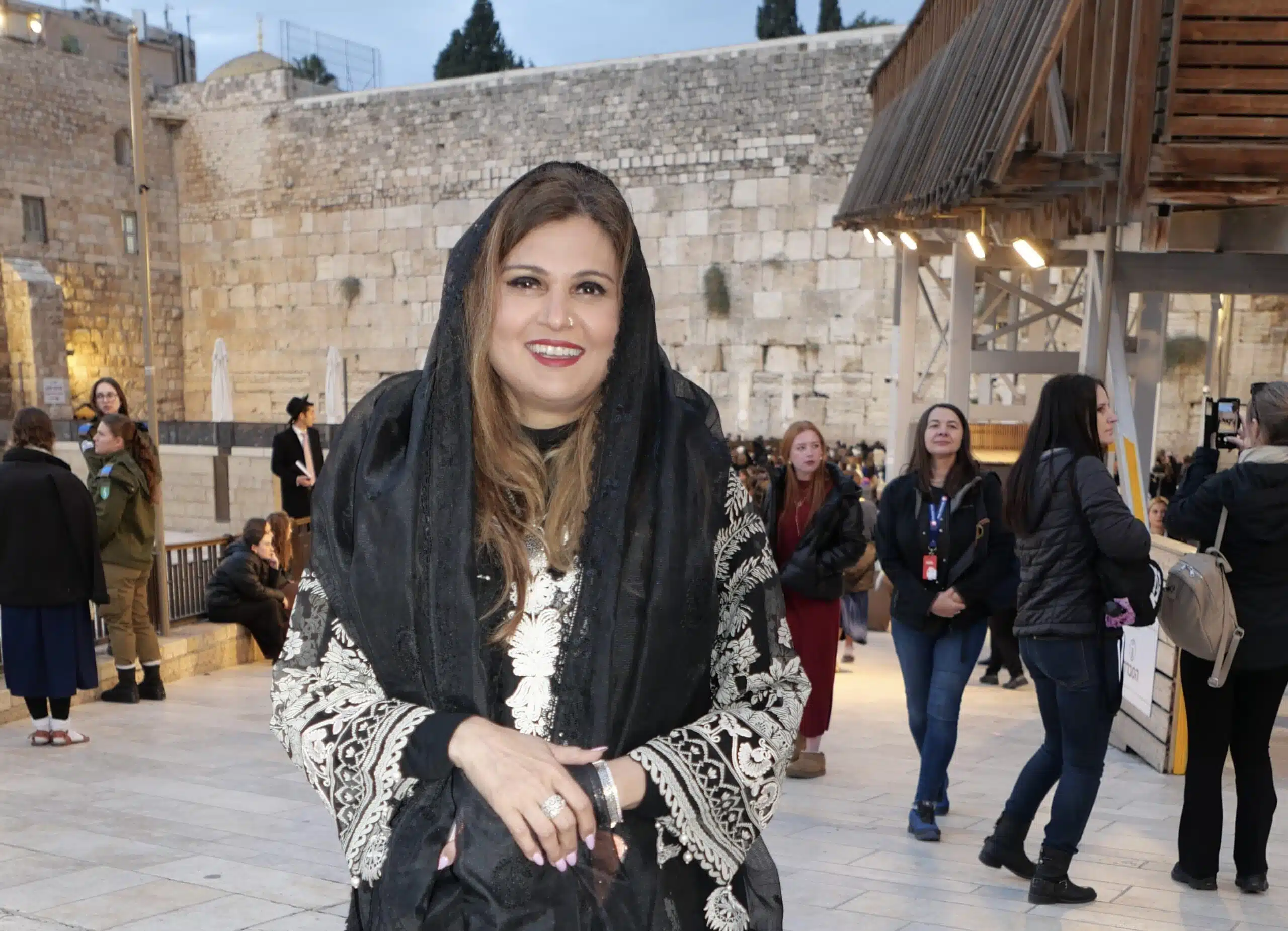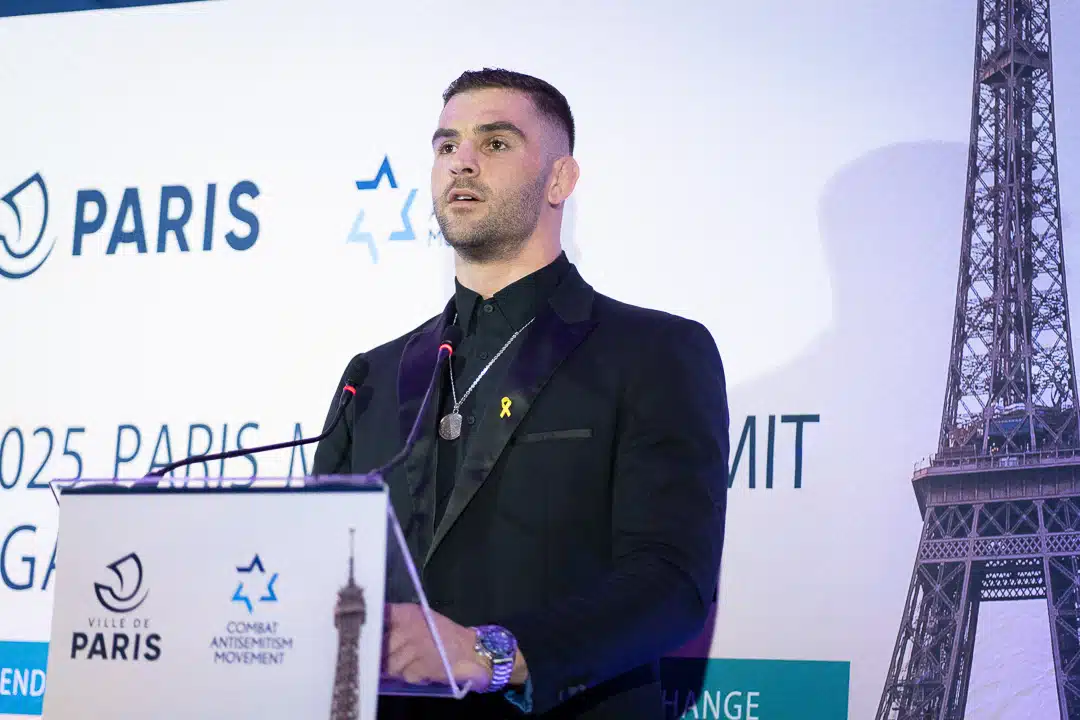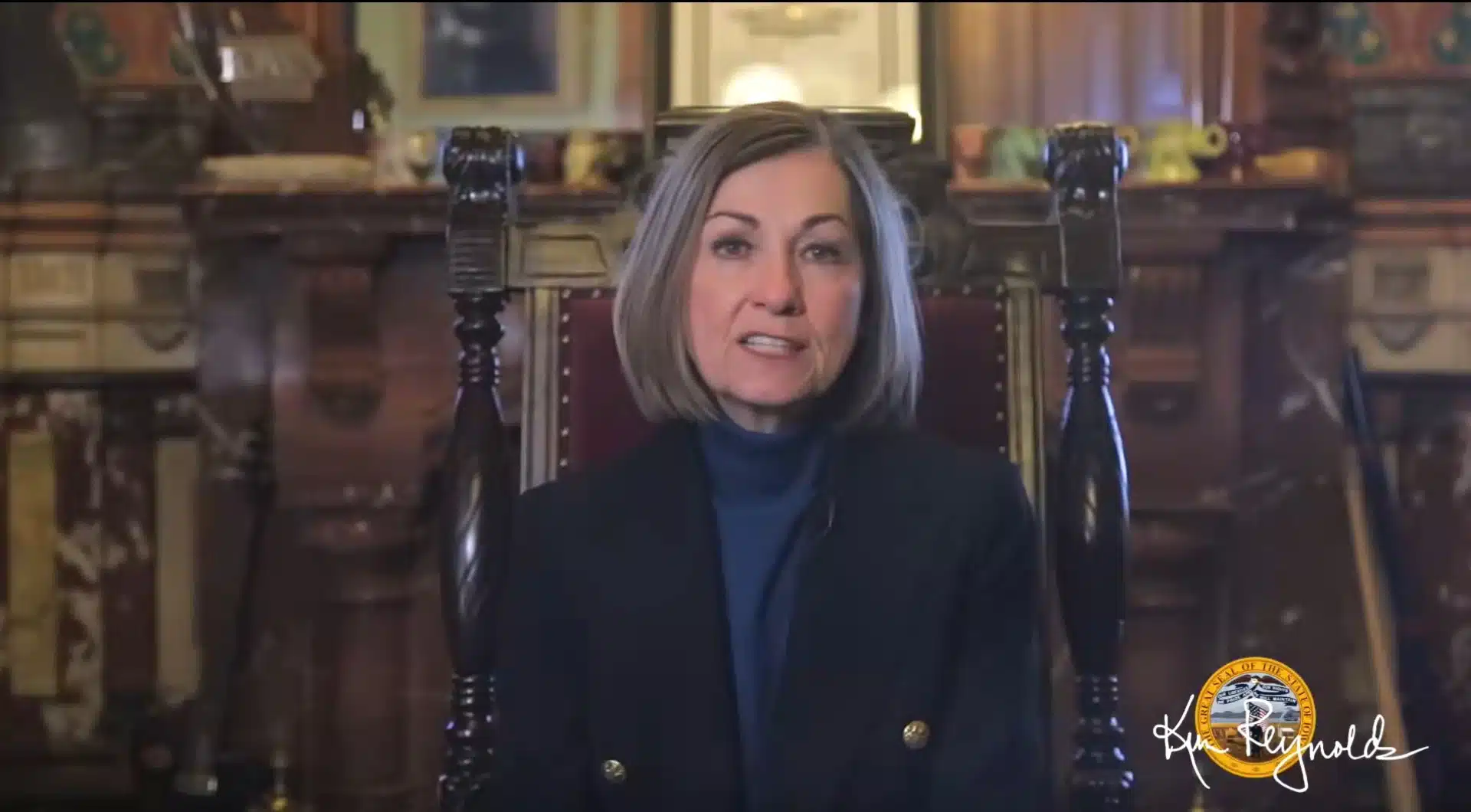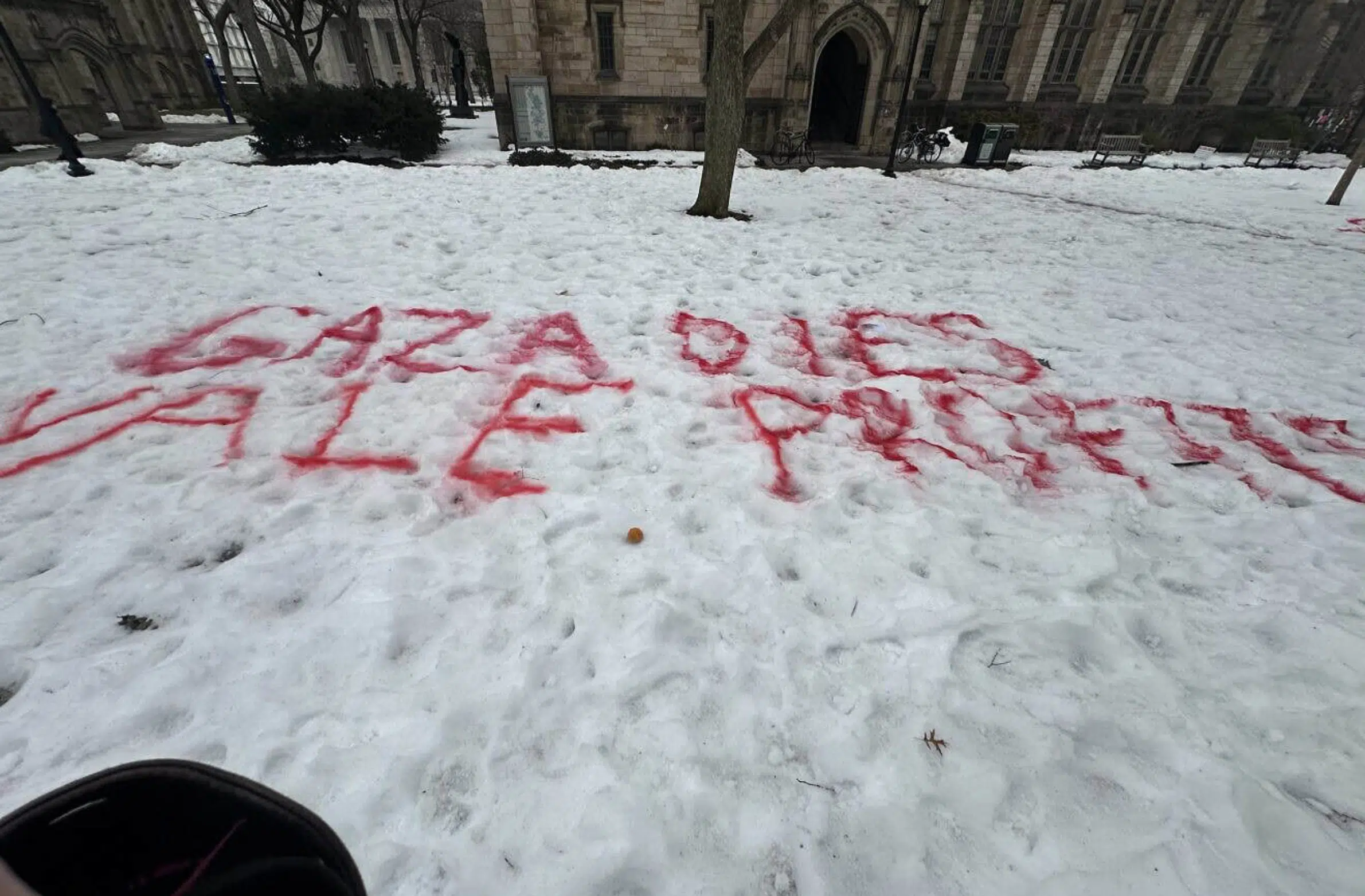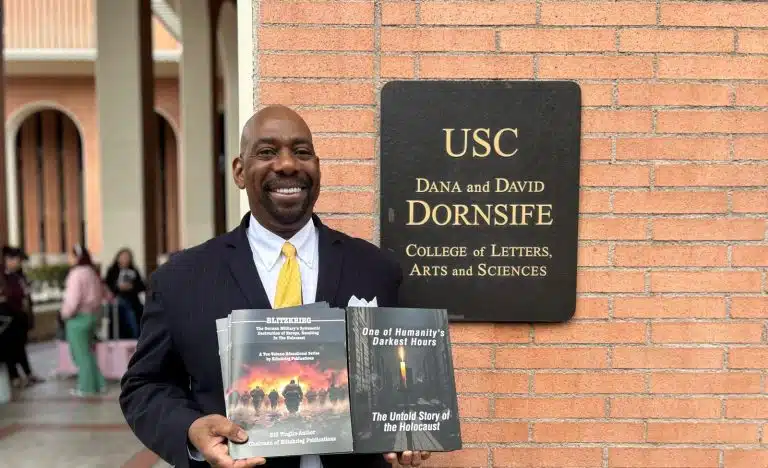
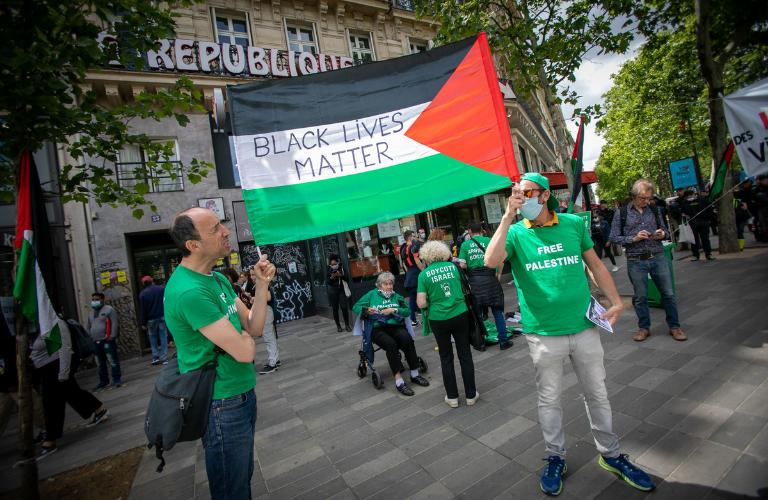
New Jewish Advocacy Group Warns of Antisemitism Growth Fueled by ‘Critical Social Justice Ideology’
The prevailing social justice rhetoric in progressive circles in recent years — often featuring heavy doses of anti-Israel vitriol, as well as the legitimization of antisemitic stereotypes — has left many American Jews feeling alienated from causes they would otherwise wholeheartedly support.
The notion that Jews should not be forced to choose between their political and religious identities is what led veteran Jewish professional David Bernstein to establish a new advocacy group earlier this year — the Jewish Institute for Liberal Values (JILV).
The Combat Antisemitism Movement (CAM) spoke with Bernstein this week to learn more about his organization’s mission.
Why was the Jewish Institute for Liberal Values founded?
The Jewish Institute for Liberal Values (JILV) was founded in May 2021. We launched with a letter, which we called the “Jewish Harper’s letter,” that expressed concern about the ideological environment in the U.S., particularly “cancel culture,” the imposition of ideology, and the growth of antisemitism that seemed to be resulting from this ideology.
And it was only a couple of weeks later that the Gaza conflict erupted and you could see on full display how the “woke” discourse, if you will, had enabled anti-Israelism, anti-Zionism, and antisemitism in America and the West.
While we focus on liberal values, that is the ability of people to talk freely and to have a free expression of ideas, we also have been calling into discussion the emergence of this ideology and its impact on Jews, and the antisemitism in particular.
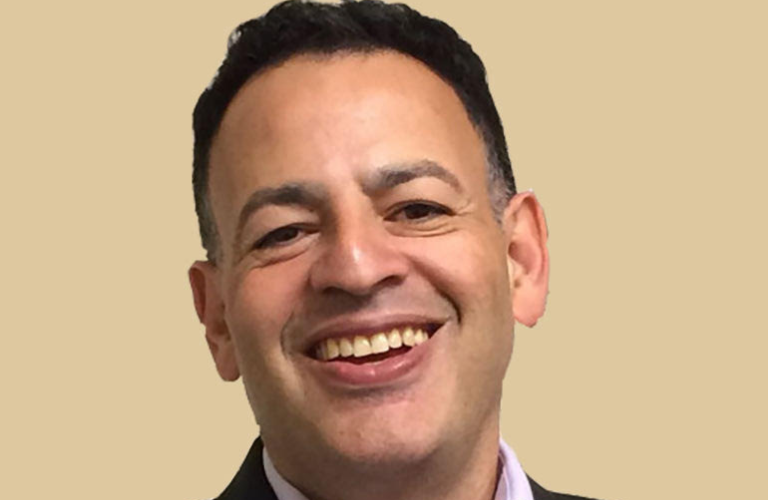
What have your main activities been so far?
We are educating the Jewish community on this ideology and how it functions, particularly how it fuels antisemitism. We’re doing that through livestream events. And we’ve published around 20 op-eds.
We’re also organizing key constituencies in the Jewish community, rabbis being foremost among them. We’ve created something called the “Rabbinical Council,” chaired by Rabbi David Wolpe. We are using rabbis, we hope, to change the culture of the Jewish community and remind people of the kind of community we want to be in, an inclusive community that also means viewpoint diversity as well.
We’re conducting advocacy campaigns around key issues. And we’re working on building a new centrist coalition with groups like Asian Americans, Black heterodox thinkers, Latino business leaders — not a normal run-of-the-mill leftist coalition that I think most of the Jewish community has been part of. We’re trying to find new partners who are committed to liberal values and democratic norms, from the center-left to center-right.
Who is your main target audience?
Our main target audience is the mainstream Jewish community. We think many mainstream Jewish organizations have embraced an ideology of diversity that has serious ramifications that hurt us. We want them to hit the pause button and understand that this ideology has serious consequences, and that they should pay attention to it more.
There are concepts that are creeping into our discourse, like “equity.” We used to speak of “equality,” for example, equality of opportunity. Today, the new buzzword is equity, and it means that any disparity in outcomes among groups is proof positive of discrimination. And if you say that one minority group is being held down by oppression, then you have to say that any groups that are succeeding collectively, like Jews or Asian Americans, are being propped up by the same system, and are therefore complicit in that system. That’s problematic. It causes antisemitism.
So I think the Jewish community has been too quick to embrace these ideas in the name of a new civil rights lexicon, without realizing what its full consequences are and without really understanding what it means for the Jewish people and society.
What kind of responses of have you received so far?
Let’s put it this way … I’ve been publicly lambasted and privately congratulated. There are people who want to do everything they can to prevent my point of view from being expressed publicly, and they want make sure others pay a very high price for expressing the same thoughts.
Yet many, many people privately will email me, message me, thank me, saying they wish they could speak out but don’t feel they could without consequence. And really, I think the task at hand for us is to bring more of these people out of the woodwork — to get this people to take some measured risk in speaking publicly, because the only way we’re going to be able to get the silent majority to be less silent, and to change the tenor of public conversation, is to get them to intervene in the discussion.
It’s not solely along the conservative-liberal divide. There are a lot of center-left people who don’t want to be silenced, who want to participate in a vigorous intellectual conversation, who know that the world is complex and we need complex explanations for why there is disparity in the world, and who don’t want to be told that the only acceptable explanation for disparity in the world is racism. And they see the dangers of antisemitism emerging from this ideology.
What will be the long-term benchmark of success for the JILV?
I think in three years’ time, we’d like to see a critical mass of the Jewish community understand that this ideology is dangerous and take steps to turn the tide. It’s going to take a while, and I think it will track with whatever is happening in the larger society, some of which may be beyond our control.
But we want to disrupt the conversation in the Jewish community and empower those voices who want to say, “We want to think more about this because there are negative consequences associated with it.”
It’s very hard. Jewish organizations, in the post-George Floyd reckoning, started hiring diversity consultants and the like, and they feel this need to defer to these voices rather than exercise their independent judgment about these social justice concepts.
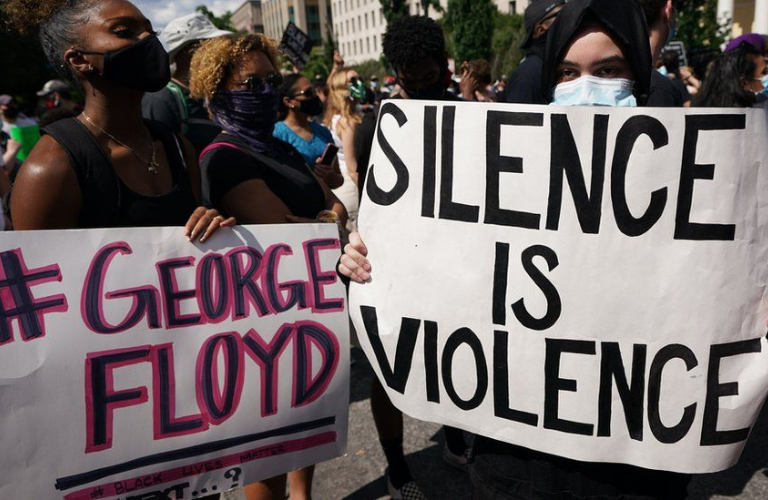
How much is your work influenced by the political atmosphere?
Unfortunately, this debate has become front and center in partisan discussion. No one ever heard the term “Critical Race Theory” even six months ago, and now it’s a centerpiece of public debate. That’s complicating things, because every time I speak about the dangers of “Critical Race Theory” taught as dogma in schools, people associate me with a right-wing agenda, which is not what I have. I just want there to be intellectual openness and critical thinking.
I spent most of my past professional career doing progressive activism, such criminal justice reform, immigrant rights, fighting racism, and the like. But that doesn’t immunize me from being roundly condemned. In fact, it makes me more of a target because people see it as a greater threat when you have those credentials. They even work harder to discredit you.
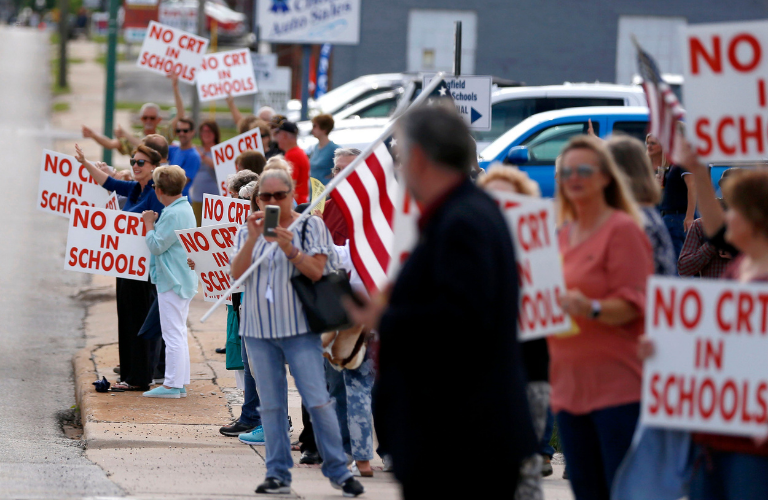
What were the main takeaways from the recent JILV report on what was termed “Critical Social Justice Ideology”?
(The full report can be read here.)
There are several key ways that this ideology, for which there is no perfect term, by the way, fans the flames of antisemitism.
First, the ideology insists on this hierarchy of privilege, which legitimizes notions of Jewish privilege, which sounds a lot like traditional tropes about Jewish power.
Second, “Critical Social Justice Ideology” erases Jewish identity by insisting Jews are white and not worthy of self-definition.
Third, “Critical Social Justice Ideology” propagates an anti-Israel binary, dividing people into the oppressor and the oppressed, and of course treating Israel as the perennial oppressor.
Fourth, the concept of equity vilifies Jews by insisting that white supremacy is the only reason there can be disparities among groups. And if that’s the case, those that are being propped up, Jews and Asians, and others, are going to be deemed complicit in white supremacy.
And fifth point I would mention is that whenever Enlightenment values are undermined in society, that’s not going to be good for Jews. Jews thrive in societies that are built on Enlightenment values, not those that undermine them.
What can everyday people do to help this cause?
First of all, there is the larger strategic question of what the Jewish community should do. We have to change our strategy from engaging primarily with the progressive left to building this new center-left to center-right coalition, with the understanding that our new friends may not be the same as our old friends.
Everyday Jews can organize authentic conversations with their friends. Synagogues can organize alternative diversity seminars. We’re actually putting together a curriculum to help people have authentic conversations around sensitive topics like racism, where they’re not told exactly what they must think and say.
People can speak up at the individual level. That’s absolutely key. They can refuse to go along with this charade. They can say, “I think the world is more complicated than that. I’m not willing to participate in a diversity, equity, and inclusion program that tells me I must participate in a white affinity group.”
Individuals can resist, and this is hard. But I don’t see how we’re going to change this coercive culture in our institutions if individual Jews, individual Americans, individual Westerners, don’t stand up for liberal values.
How can people get involved with the JILV’s activities?
Of course, they can go to jilv.org, take a look at our website. They could write us a check, we do need money to make this organization work. And they can sign our statements, and participate in our various forums and advocacy campaigns.
They can also contact us about doing something in their local communities, or at their local synagogue. We’ll happy to help them think it through and even facilitate some discussion groups.
Looking at the big picture, are you optimistic or pessimistic that the JILV’s mission can be achieved?
I’m both optimistic and pessimistic, depending on the day. I’m optimistic, because there are many groups like ours, many voices like ours, that are finally coming out and challenging this. This is no longer a cakewalk for people who are trying to coerce others into a single point of view. So I do think that’s a positive sign.
A negative sign is that a whole generation of young people has been fed a steady diet of this ideology in schools, and particularly at universities now. So I worry that they don’t even have another framework for thinking about these issues, and that’s going to be hard to unearth.
To learn more about the Jewish Institute for Liberal Values, visit: jilv.org

